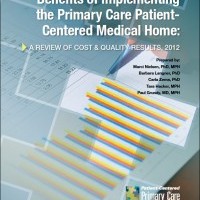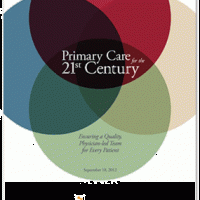Benefits of the Medical Home – Report
The Patient Centered Primary Care Collaborative has just released a report on the ‘Benefits of Implementing the Patient Centred Medical Home‘. This report documents the outcomes of a number of projects based around the medical home model of care. There are three broad conclusions. As medical home implementation increases, better health, better care and lower costs are being achieved. Momentum for the medical home model in the US is rapidly increasing with public and private sector investment. The concept of the PCMH is evolving to include the medical neighborhood. A mounting body...
Read MoreAustralian Primary Health Care Reform and the Medical Home
This month, The Australian Governments (state and federal) released a report that details components of a National Primary Health Care Strategy. Element 4 of this strategy details how a medical home can contribute to a system that is ‘Well-integrated, coordinated, and providing continuity of care, particularly for those with multiple, ongoing, and complex conditions’ An extract The concepts of ‘medical home’ and ‘patient enrolment’ In terms of integrated and coordinated care, the concept of a ‘medical home’ or regular provider is increasingly recognised...
Read MorePrimary Care for the 21st Century: Ensuring a Quality, Physician-led Team for Every Patient
The AAFP this week launched its report “Primary Care for the 21st Century: Ensuring a Quality, Physician-led Team for Every Patient ” The United States is adopting a new model of primary care built around patients and delivered by teams. As a key element of this approach, primary care medical practices are being called upon to do more, and to do it better, while managing resources ever more wisely. This approach is generally known as the patient-centered medical home (PCMH).1 It has proven to increase quality of care for the patient and cost-effectiveness for the health care...
Read MoreFamily Physicians Are ‘Linchpin’ of US Health Care Reform Efforts
In response to the growing crisis in health care costs, public and private payers have launched scores of innovative health care delivery and payment models designed to reward the value of health care services instead of the volume of services. “It is pretty hard to think about increasing value in the health care system without having a larger role for the family physician,” says Len Nichols, Ph.D., director of the Center for Health Policy Research and Ethics and professor of health policy for the College of Health and Human Services at George Mason University in Fairfax,...
Read More



Recent Comments